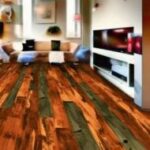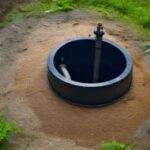-
Recent Posts
-

How to Refinish Your Wood Floors and Give Your Home a New Look
April 03, 2023 By admin -

Why Septic Tank Riser Is A Worthy Idea For Your Septic System?
March 21, 2023 By admin -

The Top Ten Benefits of Hiring a Furniture Removal Service
March 02, 2023 By admin -

Benefits of Switching from Natural Grass to Fake Grass
February 25, 2023 By admin
-
Air Purifier For Home – Five Features To Say Yes To

Picking an air purifier for home can be confusing. Every model makes bold claims about air quality and filter technology that sounds like jargon. It is difficult to figure what to believe and how to invest your money.
While the engineering and science inside an air purifier can be pretty complicated, what customers should look for is quite simple: how effective is the machine at purifying the air? This question can be broken into several parts that focus on the performance of the air purifier.
Here are five features to look for in an air purifier for home use.
Near 100% Filter Efficiency
Most air purifiers for home use feature “HEPA” filters, which stands for “High-Efficiency Particulate Air.” These use a fine mesh of fibers to capture particles that are above 0.3 microns in size. HEPA filters remove over 99.9% of particulate matter in the air, leaving only a tiny number of ultrafine particles.
While many air purifiers use a HEPA filter, some do not. These often fail to achieve the same level of air purification as models that include a HEPA filter.
High-quality air purifiers for home may include a secondary filter such as a charcoal filter. Not only does this provide an extra layer of protection for ultrafine dust particles, but it can also remove some volatile organic compounds (VOCs) from the air.
Long Filter Lifespan
Air filters don’t last forever. They can last for thousands of hours, but they eventually become filled with dust, pollen, and hair, and you need to switch them out. Replacing your filter is a hassle, so select a purifier with a long filter lifespan that will help you get more from your unit.
HEPA filters are not washable or reusable. They are made with a fibrous material that can trap dust particles. By washing the filter, you will remove the hair-like fibers essential in the operation of the filter. Your air purifier will likely run more smoothly, but the air will not be filtered effectively.
Large Space Coverage
Air purifiers for home can only process a limited amount of air. They draw in the air using a fan, pulling it through one or more filters, and purifying it. The power of that fan will determine how much air will be filtered within a given time. If the recommended coverage area is smaller than your space, the air will not be adequately filtered. Suppose your room is smaller than the suggested space. In that case, the air within that room is being filtered more often, meaning better air purity. It also may mean you can operate your air purifier on a lower setting, which means less noise.
Virus Elimination
Since 2020, many air purifier manufacturers have claimed to remove viruses from the air, but this is sometimes based on questionable marketing claims. Some viruses can pass through a filter, meaning that your air purifier may be acting to recirculate viruses through the air in your home.
Quality air purifiers for home can include extra filters and features that effectively remove viruses from the air and deactivate viral particles. While many have understandably become interested in virus elimination technology since COVID, this feature will also reduce the risk of transmitting colds or the flu within your workplace or home.
Low Noise
“Low noise” may not seem like it relates to performance, but it will make a difference in how you use your air purifier for home. If the machine is loud at its highest setting, you will probably run it at a medium setting when sleeping, watching a movie, or on a phone call. The power setting of an air purifier typically primarily affects the fan speed. By decreasing the fan speed, the amount of air you are filtering is reduced. In practice, this means the space coverage ability of the unit will be effectively reduced.
Older air purifiers for home will become louder as they begin to rattle. This is a sign that it is time to replace your air purifier.
The Perfect Air Purifier for Home
These features are a great place to start when looking for an air purifier for home use. There are many low-quality air purifiers on the market, but they often do not include all of these features. Only a premium air purifier will be able to fully protect the air in your household.
